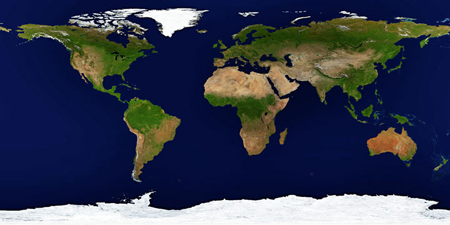The cruel persecution of the Ahmadis has certainly hurt the sect and checked its growth in its homeland. But by empowering violent extremists it has also hurt the rest of Pakistan.
 |
| Ahmadiyya Muslim leader Syed Shamshad Ahmad Nasir honors Mormon leader Daniel Stevenson at Baitul Hamid Mosque in Chino California. |
Source/Credit: The Print
By Sadanand Dhume | December 5, 2017
Only when it’s militarily strong and culturally confident can the West play a meaningful moderating role in the Islamic world
In my most recent Wall Street Journal column — read it here — I look at the plight of South Asia’s most violently persecuted religious minority: Pakistan’s Ahmadiyya Muslims. Since Pakistan declared the sect to be non-Muslim in 1974, Ahmadis have suffered escalating violence including lynchings, terrorist attacks, and death sentences under the country’s draconian blasphemy laws.
Beyond a harrowing tale of human suffering that deserves telling, the Ahmadi experience also holds lessons for the West. Instead of standing down Islamists, who began baying for Ahmadi blood as early as 1953, just six years after Pakistan was born, successive governments buckled under pressure. Kowtowing did not sate Islamist appetites; on the contrary, it whetted them. Now we’ve reached a stage where even the slightest hint of forbearance toward the beleaguered community is enough to bring armed mobs to the streets of Pakistan.
Another lesson: Only when it’s militarily strong and culturally confident can the West play a meaningful moderating role in the Islamic world. It’s no coincidence that the Ahmadi sect, which forswears violent jihad as unsuitable for the modern age, was born in India at the end of the 19th century, at the height of British power in the subcontinent.
Islamist groups such as the Jamaat-e-Islami have long attacked the Ahmadis for their loyalty to the British crown. For Jamaat-e-Islami founder Abul Ala Maududi, jihad, or holy war against non-believers, was an intrinsic aspect of Islam. As the Pakistani-American blogger Omar Ali points out, “anglophile reformism” likely influenced the more moderate views of Mirza Ghulam Ahmad, who founded the new sect in 1889.
What could Pakistan learn from the United States? Take the striking parallels between Ahmadis and Mormons. Both were founded in the nineteenth century by men who said they received divine revelations. Both groups place great emphasis on missionary activity. Many Christians reject the notion that Mormons are fellow Christians, just as many Muslims claim that Ahmadiyya Islam isn’t really Islam. The Mormon scholar Garth Jones examined these similarities in some detail in the journal Dialogue, but what’s equally telling is the profound difference between the US and Pakistan.
Simply put, nineteenth century bouts of conflict with Mormons notwithstanding, the US has found ways to accommodate differences under the umbrella of institutions that protect diversity. An enlightened Pakistan would have looked for ways to benefit from a peaceful and relatively well-educated community instead of seeking to stamp it out simply for holding uncommon beliefs.
The cruel persecution of the Ahmadis has certainly hurt the sect and checked its growth in its homeland. But by empowering violent extremists it has also hurt the rest of Pakistan.
_________________
Sadanand Dhume is a resident fellow at the American Enterprise Institute.
This article originally appeared on the American Enterprise Institute website.
Read original post here: What’s common between Pakistan’s Ahmadiyya Muslims and America’s Mormons
This content-post is archived for backup and to keep archived records of any news Islam Ahmadiyya. The views expressed by the author and source of this news archive do not necessarily reflect the views and policies of Times of Ahmad. Times of Ahmad is not an organ of the Ahmadiyya Muslim community, nor in any way associated with any of the community's official websites.













No comments:
Post a Comment
Thank you for your comments. Any comments irrelevant to the post's subject matter, containing abuses, and/or vulgar language will not be approved.